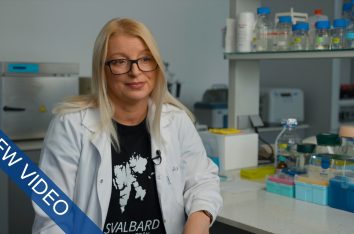Breast cancer is the most common cancer in women and a cause of death of over half a million patients worldwide. The development of the distant metastases is associated with a particularly poor prognosis of patients. However, the mechanism of the metastatic formation (metastatic cascade) has not been fully recognised. A better understanding of the metastasis process would enable the development of new therapeutic strategies or tools for monitoring the course of the disease.
read more
The research conducted under the supervision Aleksandra Markiewicz, Ph.D. from the Department of Translational Oncology of the Intercollegiate Faculty of Biotechnology UG&MUG focuses on the analysis of cancer cells outside the primary tumour. Circulating tumour cells (CTCs) found in the blood may constitute a particularly aggressive, selected tumour cell population, the molecular profile of which may differ from that of the primary tumour, and provide additional information about the neoplastic disease. Since the number of CTCs in the blood sample is small, the exact characterisation of gene expression profiles in these cells is possible only after micromanipulatory isolation of single CTCs, without contamination with other blood cells, the admixture of which may affect the result of gene expression analysis. Moreover, the CTCs from an individual patient do not constitute a homogeneous population and may differ from one another, e.g. in terms of the ability to form distant metastases. Therefore, not the number alone, but the molecular profile of the CTCs may carry the most important information, also from a clinical point of view. The aim of the research is to understand the molecular profiles of the CTCs related to the invasiveness/aggressiveness of cancer cells, stem cells and falling outside the control of the immune system in patients with breast cancer. The obtained data are combined with the clinical and pathological data of patients in order to understand how the characteristics of the CTCs may be related to the course of the disease.



